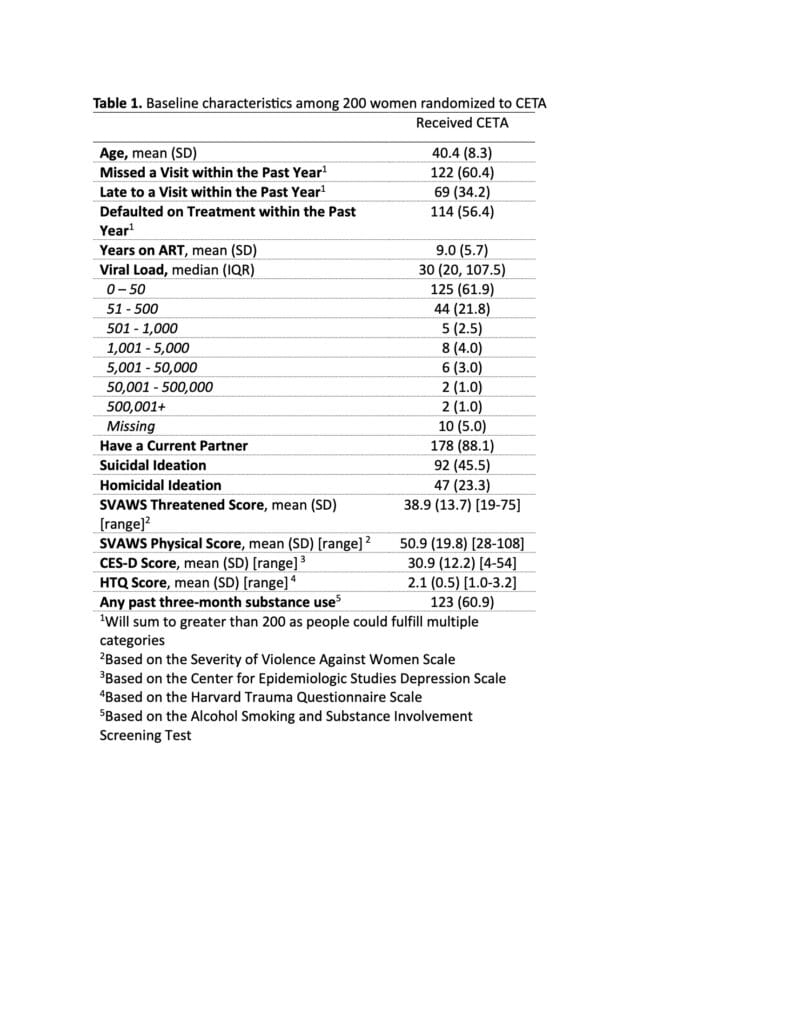HIV / STI
Acceptability of the common elements treatment approach among women living with in south africa Amy Zheng* Amy Zheng Sithabile Mgnadi-Ncube Laura Murray Pertunia Manganye Kristina Metz Ross Greener Sristhi Sardana Lawrence C Long Donald Thea Matthew P. Fox Jeremy C Kane Sophie Pascoe
Intimate partner violence (IPV) is a barrier to retention in HIV care and achieving viral suppression. We conducted a randomized control trial evaluating the effectiveness of the Common Elements Treatment Approach (CETA), a cognitive-behavioral intervention utilizing lay healthcare workers to improve HIV retention and suppression in Johannesburg, South Africa. Here we describe CETA engagement and acceptability.
This was a single-blind trial among 400 women living with HIV who experienced sexual and/or physical IPV in the last 12-months, initiated antiretroviral therapy and had either an unsuppressed viral load or were at risk for poor adherence in the past year. Women were randomized to receive either 8-12 CETA sessions or weekly safety text messages. Questionnaires on depression, anxiety, trauma, substance use, and IPV were administered at enrollment, 6 and 12-months. Retention and suppression were assessed at 12 and 24-months.
Among the 200 women randomized to CETA, 114 (56.4%) defaulted on treatment in the past year, and 191 (95.5%) were late/missed a visit in the past year. Women reported high levels of depression, anxiety, trauma, and substance use (Table 1). Participants averaged 7.6 (SD: 4.4) sessions over an average of 12 (SD: 7.0) weeks with 115 (57.5%) completing CETA. Of the 10 (5.0%) women who withdrew, 7 did not complete CETA and 1 withdrew prior to starting CETA. The most common reason for withdrawing was having other competing interests such as employment. Of the 15 (7.5%) who were lost to follow-up, 11 did not complete CETA, 3 were lost prior to starting CETA, and 1 was lost during follow-up. Only 23 (11.5%) participants received telehealth CETA; all others had in-person sessions.
Comorbid conditions of anxiety, depression, trauma, and/or substance use was highly prevalent. CETA was largely acceptable given the high number of sessions conducted. As mental health professionals are limited and expensive, CETA could be a potential alternative.

